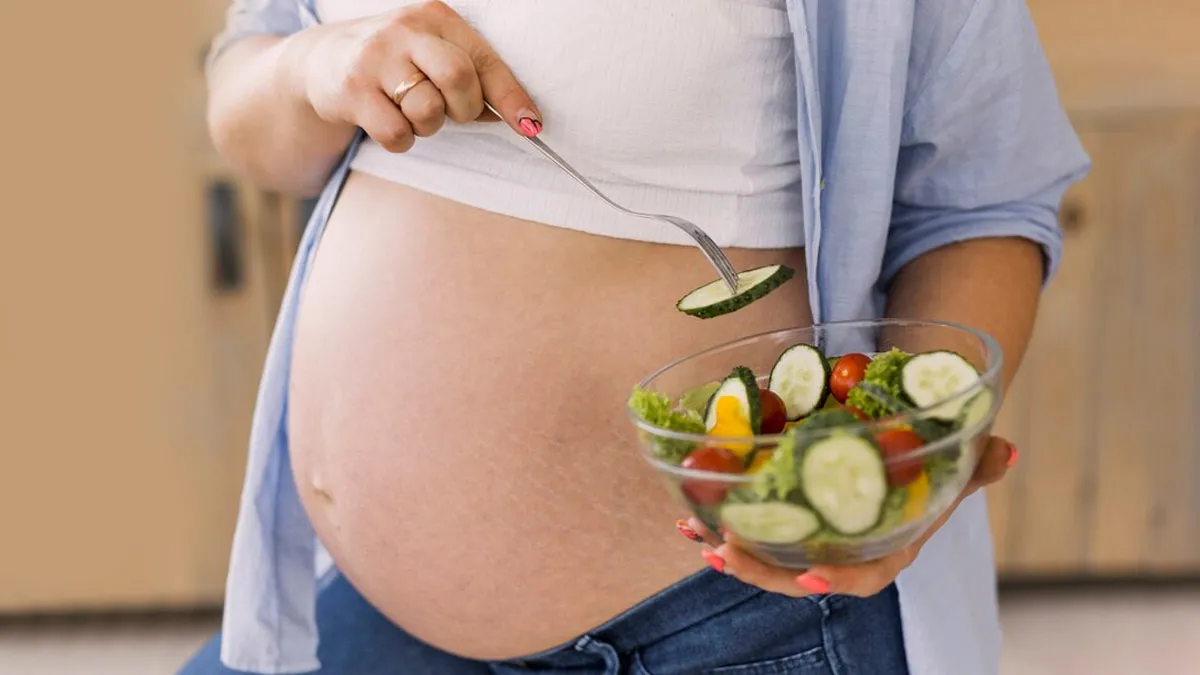
Pregnancy is a time when many women focus on maintaining a healthy lifestyle to ensure the well-being of both themselves and their developing baby. However, one aspect of nutrition that is often overlooked or misunderstood is the impact of high-sugar and carbohydrate diets. While a balanced diet is essential during pregnancy, consuming excessive amounts of sugar and refined carbohydrates can pose serious risks to both the mother and baby.
Table of Content:-
Speaking to Onlymyhealth, Dr Neerja Goel, Senior Gynaecologist, Sharda Care - Healthcity, explained why high sugar and carb diets can be dangerous during pregnancy and what research says about it. Here’s what you should know, too.
Role Of Sugar And Carbs During Pregnancy
Carbohydrates are an important source of energy for the body, and sugar, which is a simple carbohydrate, provides quick fuel for various bodily functions. However, not all carbs are created equal. Simple sugars and refined carbohydrates, found in foods like white bread, sugary snacks, soda, and pastries, are rapidly absorbed into the bloodstream. This can cause blood sugar levels to spike, followed by a rapid drop, leading to fatigue, cravings, and increased hunger.
In contrast, complex carbohydrates (like whole grains, fruits, and vegetables) provide a slower, more stable release of energy and have additional health benefits due to their fibre content. During pregnancy, maintaining steady blood sugar levels is crucial for both maternal and fetal health.

Also Read: Expert Shares Benefits Of Eating Water Chestnuts During Pregnancy
Risks To The Mother
The risks involving the mother include:
1. Gestational Diabetes
Dr Goel highlighted that one of the most significant risks of consuming high amounts of sugar and carbs during pregnancy is the development of gestational diabetes. This is a condition when the body cannot produce enough insulin to manage the blood sugar levels during pregnancy, leading to elevated glucose levels in the blood. Research has shown that excessive sugar intake during pregnancy can increase the risk of gestational diabetes.
2. Increased Weight Gain
A high-carb, high-sugar diet is also linked to excessive weight gain during pregnancy. Consuming too many simple sugars can contribute to a caloric surplus that is difficult to burn off, leading to weight gain. Excessive weight gain can increase the risk of complications such as hypertension, preeclampsia, and the need for a cesarean section (C-section).
3. Increased Inflammation
Diets high in sugar and refined carbs have been shown to increase inflammation in the body. “This is a concern during pregnancy, as excessive inflammation can lead to complications such as insulin resistance and contribute to the development of gestational diabetes. Furthermore, chronic inflammation has been associated with poor pregnancy outcomes, including preterm labour and complications with the placenta,” explained Dr Goel.

Also Read: Why Pregnant Women Should Avoid Eating Liver: Understanding the Risks and Alternatives
Risks To The Baby
The risks involving the baby may include:
1. Increased Risk of Birth Defects
A high-sugar, high-carb diet can contribute to an unhealthy environment for fetal development. Elevated blood sugar levels can impair the development of the fetus, increasing the risk of birth defects, particularly those related to the heart and spine. Dr Goel also pointed out that high maternal blood glucose levels were linked to an increased risk of neural tube defects in the baby.
2. Fetal Overgrowth (Macrosomia)
Consuming excessive sugar and refined carbs can also lead to fetal macrosomia, a condition where the baby grows too large in the womb. This occurs because the excess glucose from the mother's blood is transferred to the baby, causing it to store more fat. Macrosomia increases the risk of complications during delivery, such as shoulder dystocia (difficulty delivering the baby's shoulders) and birth injuries.
3. Future Health Issues for the Baby
Babies born to mothers with poorly managed blood sugar levels may face long-term health issues. Research has shown that children born to mothers with gestational diabetes are at a higher risk of developing obesity, type 2 diabetes, and other metabolic disorders later in life. This condition, known as "diabesity," may affect the child’s health well into adulthood.
Tips for Maintaining a Healthy Diet During Pregnancy
Here are a few expert-approved tips you should follow for maintaining a healthy diet during pregnancy:
- Focus on whole foods
- Limit processed foods and sugary beverages
- Eat smaller, more frequent meals
- Stay Hydrated
- Regular check-ups with your healthcare provider
Bottomline
A high sugar and carbohydrate diet during pregnancy can lead to several risks for both mother and baby, including gestational diabetes, excessive weight gain, and complications during delivery. Experts suggest that managing blood sugar levels through a balanced diet is essential for a healthy pregnancy. By choosing nutrient-dense, whole foods and avoiding excessive sugar and refined carbs, expectant mothers can improve their chances of a healthy pregnancy and reduce the risk of complications for both themselves and their babies.
Also watch this video
How we keep this article up to date:
We work with experts and keep a close eye on the latest in health and wellness. Whenever there is a new research or helpful information, we update our articles with accurate and useful advice.
Current Version